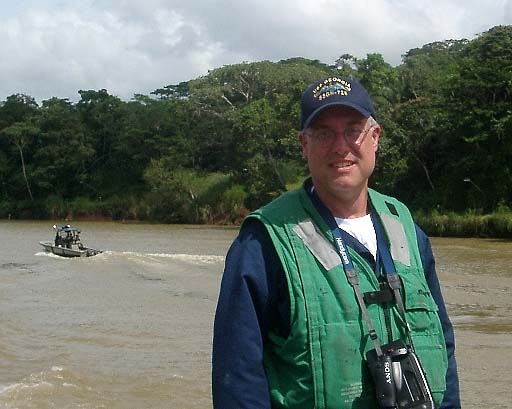From the Great Charles Johnson at Little Green Footballs, Obama's Nobel Acceptance Speech.
Of course, Charles and I differ. My thoughts on Mr. Obama are well known. Still, when someone says the right things, it must be acknowledged. While I will not (yet) go so far as to say that Mr. Obama is a centrist president I will commend him for the speech that he gave in accepting the Nobel Peace Prize. Here it is. Read it all.
Text of Barack Obama Nobel Prize acceptance lecture
Over time, as codes of law sought to control violence within groups, so did philosophers, clerics, and statesmen seek to regulate the destructive power of war. The concept of a “just war” emerged, suggesting that war is justified only when it meets certain preconditions: if it is waged as a last resort or in self-defense; if the forced used is proportional, and if, whenever possible, civilians are spared from violence.And, it seems that he has stopped apologizing.
For most of history, this concept of just war was rarely observed. The capacity of human beings to think up new ways to kill one another proved inexhaustible, as did our capacity to exempt from mercy those who look different or pray to a different God. Wars between armies gave way to wars between nations – total wars in which the distinction between combatant and civilian became blurred.
In the span of thirty years, such carnage would twice engulf this continent. And while it is hard to conceive of a cause more just than the defeat of the Third Reich and the Axis powers, World War II was a conflict in which the total number of civilians who died exceeded the number of soldiers who perished.
In the wake of such destruction, and with the advent of the nuclear age, it became clear to victor and vanquished alike that the world needed institutions to prevent another World War. And so, a quarter century after the United States Senate rejected the League of Nations – an idea for which Woodrow Wilson received this Prize – America led the world in constructing an architecture to keep the peace: a Marshall Plan and a United Nations, mechanisms to govern the waging of war, treaties to protect human rights, prevent genocide, and restrict the most dangerous weapons.
In many ways, these efforts succeeded. Yes, terrible wars have been fought, and atrocities committed. But there has been no Third World War. The Cold War ended with jubilant crowds dismantling a wall. Commerce has stitched much of the world together. Billions have been lifted from poverty. The ideals of liberty, self-determination, equality and the rule of law have haltingly advanced. We are the heirs of the fortitude and foresight of generations past, and it is a legacy for which my own country is rightfully proud.
I make this statement mindful of what Martin Luther King said in this same ceremony years ago – “Violence never brings permanent peace. It solves no social problem: it merely creates new and more complicated ones.” As someone who stands here as a direct consequence of Dr. King’s life’s work, I am living testimony to the moral force of non-violence. I know there is nothing weak –nothing passive – nothing naïve – in the creed and lives of Gandhi and King.I hope that he means what he says, for I am in complete agreement.
But as a head of state sworn to protect and defend my nation, I cannot be guided by their examples alone. I face the world as it is, and cannot stand idle in the face of threats to the American people. For make no mistake: evil does exist in the world. A non-violent movement could not have halted Hitler’s armies. Negotiations cannot convince Al Qaeda’s leaders to lay down their arms. To say that force is sometimes necessary is not a call to cynicism – it is a recognition of history; the imperfections of man and the limits of reason.
I raise this point because in many countries there is a deep ambivalence about military action today, no matter the cause. At times, this is joined by a reflexive suspicion of America, the world’s sole military superpower.
Yet the world must remember that it was not simply international institutions – not just treaties and declarations – that brought stability to a post-World War II world. Whatever mistakes we have made, the plain fact is this: the United States of America has helped underwrite global security for more than six decades with the blood of our citizens and the strength of our arms.
The service and sacrifice of our men and women in uniform has promoted peace and prosperity from Germany to Korea, and enabled democracy to take hold in places like the Balkans. We have borne this burden not because we seek to impose our will. We have done so out of enlightened self-interest – because we seek a better future for our children and grandchildren, and we believe that their lives will be better if other peoples’ children and grandchildren can live in freedom and prosperity.
So yes, the instruments of war do have a role to play in preserving the peace. And yet this truth must coexist with another – that no matter how justified, war promises human tragedy. The soldier’s courage and sacrifice is full of glory, expressing devotion to country, to cause and to comrades in arms. But war itself is never glorious, and we must never trumpet it as such.






1 comment:
In the wake of such destruction, and with the advent of the nuclear age, it became clear to victor and vanquished alike that the world needed institutions to prevent another World War.
Post a Comment